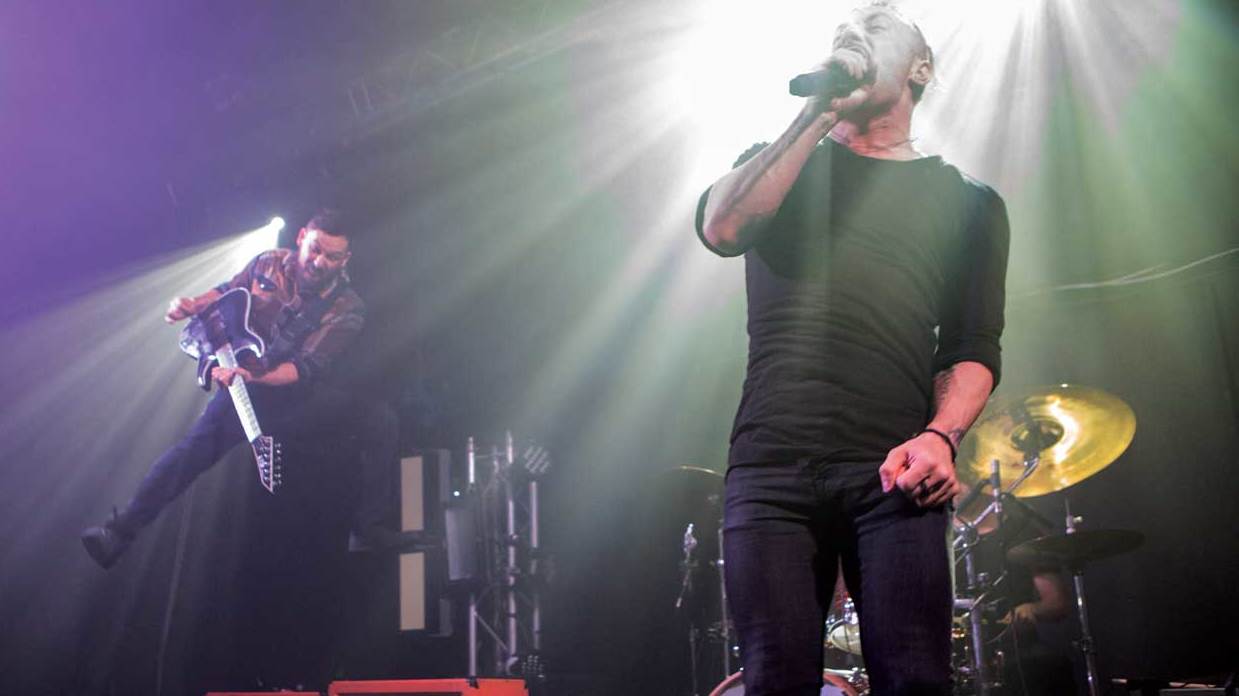This show should have been moved to a bigger venue. Even the deep, dark corners of the QMU offer no respite for the claustrophobe. Despite that, there’s a notable level of respect and lack of body space invasion, except at the bar. Is this a wake? Nobody’s sure.
Just before the house lights go down, the Glaswegian chant of “Here we, here we, here we fuckin’ go” starts up. After a flicker of white flashes (not for the strobophobe), Dillinger batter into Limerent Death, and vocalist Greg Puciato makes an early bid to enter the crowd, warning: “I’m fucking around tonight.”
But guitarist Ben Weinman is the first to make his escape. During fourth track When I Lost My Bet, he throws himself into the audience. He still manages to sort-of keep playing guitar as he’s carried back and forth, making it to the back of the auditorium where, faced with crashing into the sound desk, he climbs the back wall and hangs, as everyone watches, before throwing himself back into the crowd. Still playing.
This is a good time to reflect on what we’ll miss when Dillinger go, and a setlist featuring tracks from all six albums certainly helps to underline the main points. There’s the quirky character and sarcasm of Black Bubblegum and Nothing To Forget, the heavy doominess (live anyway) of One Of Us Is The Killer, and hints of Zappa thinking in early track Sugar Coated Sour and late number Surrogate.
But what soars above everything else is the band’s honesty. While many others have projected rage, Dillinger make an explosion feel like a private, introverted experience among friends. That’ll be why they didn’t upgrade the show to a larger venue.
Do they have to go? It seems so… There’s no way they can keep delivering their trademark life-threatening antics as the years go by – Puciato and Weinman are regular surfers all night. But equally there’s no way their music could express as much without that behaviour.
What we’ll miss most is what could have been. With the mature jazz passages highlighted across final album Dissociation, there’s a new aspect to Dillinger that sees them taking a physical breath while the music does the brooding for them, and bassist Liam Wilson comes to the fore as the happy, smiley conductor.
Still, Puciato reminds us: “We’re going to play 14 more songs… just not tonight. Tomorrow night. We’re not going home for months.”
If Dillinger do come back one day, and they’d be welcomed, it would be fascinating to see where Dissociation takes them. But if tonight’s show is indeed a wake, then it offers the right kind of emotional, valuable reflection on a remarkable musical force.
